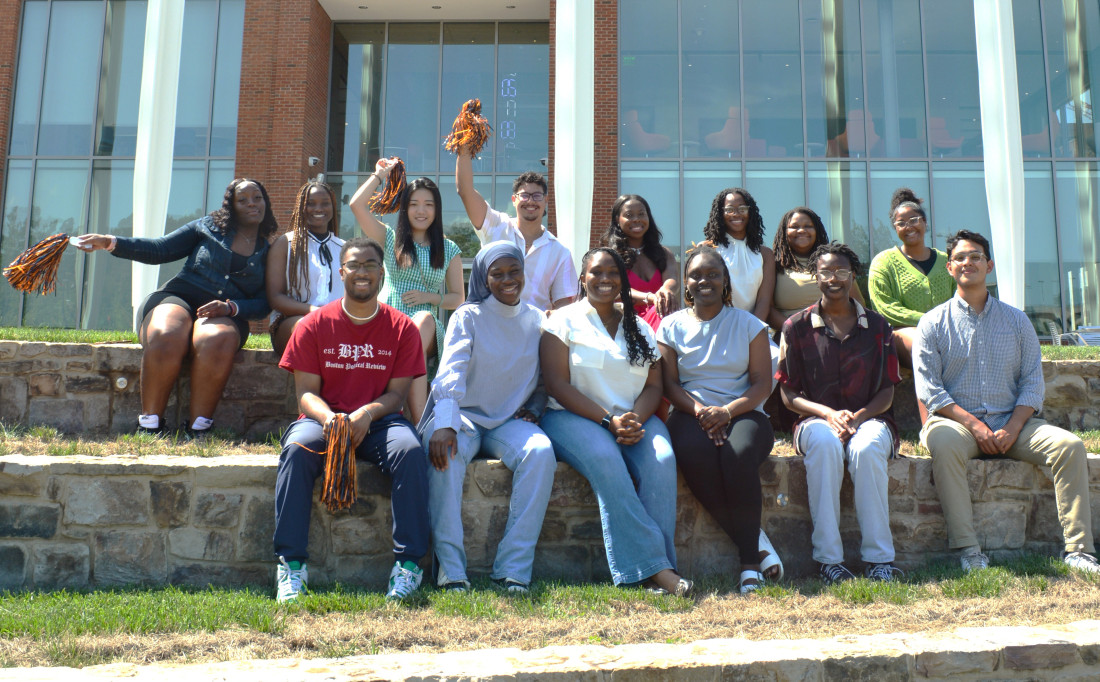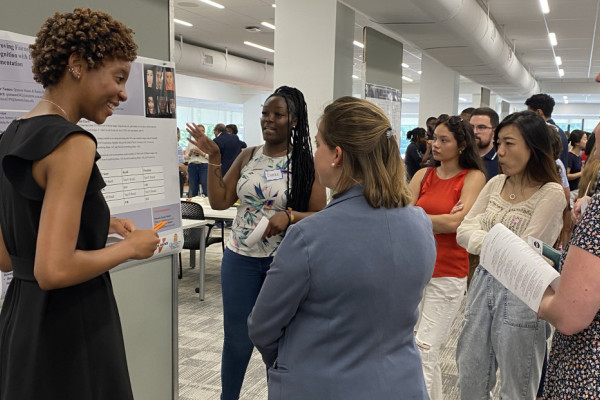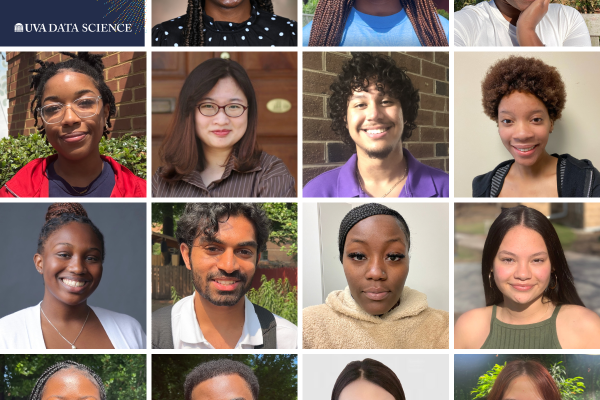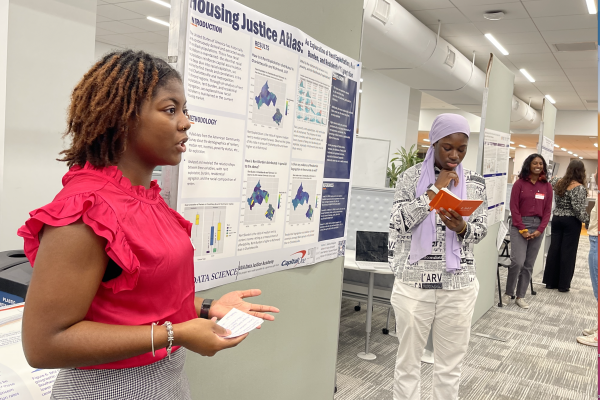Data Justice Academy Alums Reunite and Look Toward Future

Fifteen alumni from the University of Virginia’s Data Justice Academy recently reconvened to reflect on their experiences, meet with faculty, and hone skills they developed during their time as academy participants.
The Data Justice Academy is a 10-week summer residential experience in which undergraduate students from groups that are underrepresented in data science perform mentored research, learn technical skills, and discover the many ways in which data science and computational social science can help their local communities.
The academy is managed by UVA's School of Data Science.
Recently, the National Science Foundation announced that it would support the program, which is expected to fund the Data Justice Academy through 2027.
At this summer’s gathering, academy alumni got an opportunity to reconnect and update each other on their current and future academic and professional plans.
But this was more than just a reunion. Over two full days at the new home of the School of Data Science, academy alums took part in a symposium with programming that included lessons on how to deliver an effective presentation; a meeting with Dean Phil Bourne, who facilitated a discussion on the future of data and artificial intelligence; and the opportunity to practice then deliver a series of lightning talks to the annual Civics of Technology online conference.
The group also helped design experiences and activities for future academy participants.
Claudia Scholz, founder of the Data Justice Academy and director for research development at the School of Data Science, said a priority is to ensure the academy is “student focused.”
“It was really important to us to hear from our alumni about what the summer experience should look like for next year’s students,” she said. “As we enter this new phase of the program with NSF support, our alums are our brain trust. They helped us come up with activities, structures, and procedures to make the academy even better.”
Several symposium attendees shared feedback with School of Data Science staff about the event. Here is a sampling:
Jaila Adair, a rising senior at Clark Atlanta University, who is studying criminal justice and political science:
What is one thing you enjoyed about the symposium?
“I enjoyed meeting other participants from the first cohort and the focus group.”
What is one thing you want others to know about data?
“Data can be used to bring about social change, if used appropriately. Data is beyond numbers, and each of those numbers has a story. If these stories are not approached with responsibility and transparency, it can lead to misinformation, biases, and stereotypes. Individuals create data to tell a story, and we want stories to be shared and told in the most represented and best way possible.”
Carlos Gonzalez Alvarez, who is now a data fellow at the Shared-Use Mobility Center:
What is one thing you enjoyed about the symposium?
“I really enjoyed reconnecting with people, fellow alums, and faculty.”
What is one thing you want others to know about data?
“You should be creative and flexible with data.”
Sokona Mangane, who is now a data analyst at an architectural firm that focuses on higher education locations and sites with cultural significance:
What is one thing you enjoyed about the symposium?
“I enjoyed seeing other people and reflecting on my career and what it is I want to do.”
What is one thing you want others to know about data?
“How it could be used to tell a story and emphasize the impact of something! It’s possible to use different yet unconventional methods to measure something and quantify its impact.”
Jada Searcy, who is taking a gap year after graduating from Spelman College:
What is one thing you enjoyed about the symposium?
“Networking and a new way to view medicine through the lens of data science.”
What is one thing you want others to know about data?
“Data is important as it relates to medicine because it is used to improve patient outcomes, address health disparities, and ultimately create policies that promote health equity. This ensures that the insights gained lead to tangible benefits and impacts for the patient. Overall, data science implications in medicine allow one to discover patterns of interest that provide a broader worldview that aids in diagnosis and prevention methods.”
Atilia Thomas, who is completing a double major in computer science and math at Virginia State University:
What is one thing you enjoyed about the symposium?
“Meeting others from the Data Justice Academy.”
What is one thing you want others to know about data?
“That personal data from others is making companies money and that you should be more diligent about your personal data.”
Joya Wheatfall-Melvin, who is pursuing a master’s degree in data science and public policy at Georgetown University’s McCourt School of Public Policy:
What is one thing you enjoyed about the symposium?
“I thoroughly enjoyed hearing what career directions my cohort are now doing and aspire to do. I also enjoyed chatting with professors and catching up with mentors.”
What is one thing you want others to know about data?
“Specifically, data in public policy has transformative power in shaping effective, equitable, and evidence-based decisions. It moves us beyond anecdotal evidence, enabling policymakers to make informed choices backed by empirical evidence, which is what politics need right now.”
Cole Whittington, who is a senior at Boston University, studying data science:
What is one thing you enjoyed about the symposium?
“This symposium has made me start to consider pursuing a Ph.D. in data science at UVA.”
What is one thing you want others to know about data?
“I want others to know that data can be manipulated and used in any narrative.”


